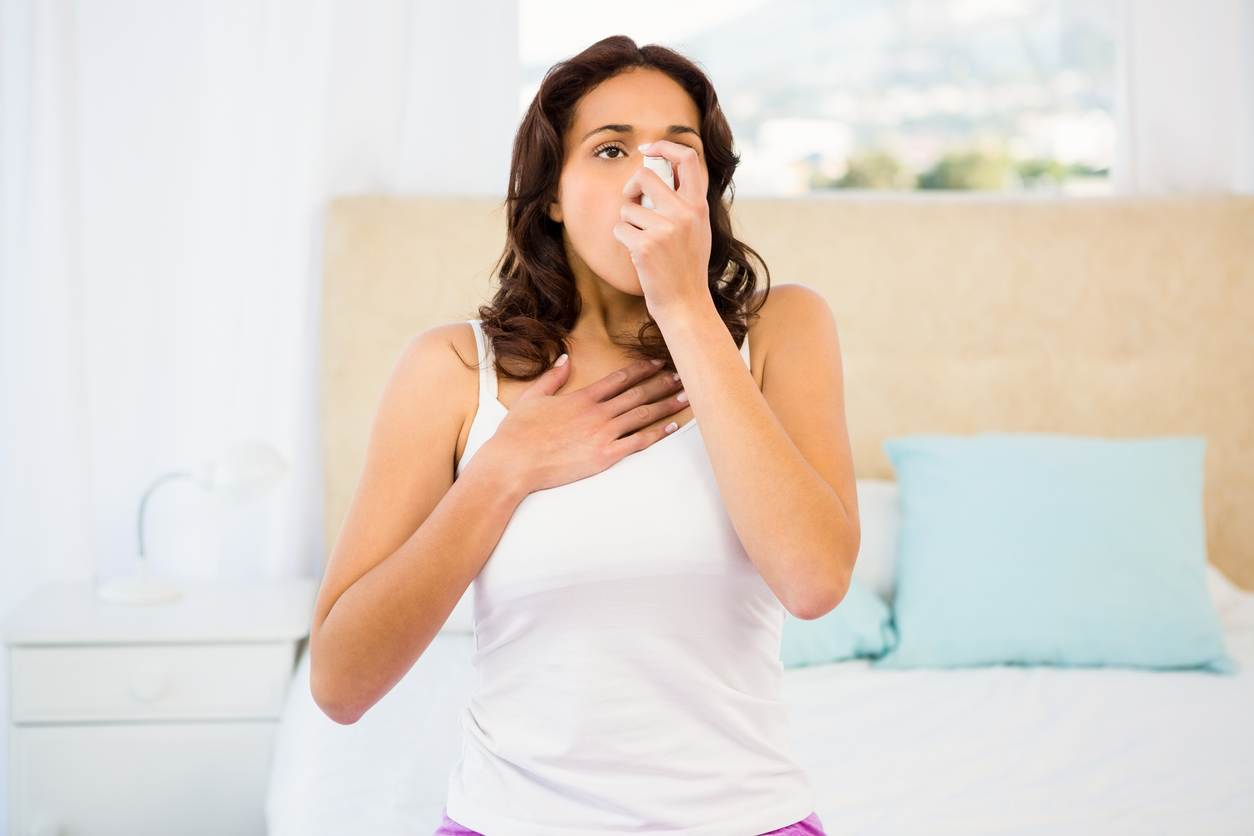Aside from making you feel miserable, you might wonder what allergies and asthma have in common. Why is your asthma specialist in New York also an allergist? As it turns out, asthma and allergies often occur together, and can be triggered by the same substances.
Allergic Asthma
Approximately 25 million people in the US have asthma, and allergic asthma is the most common type. It affects about 60% of asthma sufferers.
Although both the allergic and non-allergic varieties of asthma have the same symptoms, allergic asthma is triggered by specific allergens – substances that your immune system thinks are harmful. The immune system responds by releasing immunoglobulin E (or IgE), and too much of it triggers inflammation (swelling) of the lungs or airways. This can make it harder to breathe and bring on an asthma attack.
How to Tell if you Have Allergic Asthma
Only a doctor such as Dr. Shukla can confirm that you have allergic asthma. He usually does this using a skin or blood test. These tests will also determine if seasonal allergies or year-round allergies are causing your asthma.
Seasonal Allergies and Asthma
“The most important allergens for people with allergic asthma appear to be those asthma triggers that are inhaled (WebMD).” Hay fever or allergic rhinitis come on when a person comes into contact with an allergen, or a substance he or she is sensitive to. Pollen is one of the most common inhaled allergens, and pollen counts peak during certain times of the year. Your allergy and asthma specialist in New York, Dr. Shukla, can help you treat your allergic asthma symptoms.
Allergy Season in New York
Multiple factors determine how bad an allergy season is, including weather and precipitation levels. In 2018, New York had an unusually cold April, followed by a sudden hot spell that caused trees, grass, and weeds to bloom and release pollen all at once. “Every day it doesn’t rain,” says Dr. Clifford Basset from the American College of Allergy, Asthma and Immunology, “the pollen count gets higher and higher.”
Spring and fall are the two main allergy seasons in New York, with the pollen cycle largely running spring through fall. “In spring, the trees followed by grasses release their pollen between March and early summer,” says Dr. Mauli Desai, Assistant Professor of Medicine in the Division of Allergy and Clinical Immunology at Mount Sinai Hospital. “Then the allergy season kicks back in around late August, when ragweed season gets going.”
Limiting Exposure to Pollen
Pollen is a tiny egg-shaped cell from flowering plants. Since it cannot be eliminated from the atmosphere, it is difficult to avoid. You can lessen your exposure to pollen in the following ways:
- Limit outdoor activities during peak pollen hours, such as morning
- Stay indoors during dry and windy days, when pollen counts are highest
- Keep windows closed and use air conditioning
- Wear wraparound-style sunglasses to protect your eyes
- Use antihistamine eye drops and allergy sprays to control your allergic reactions
- Shower and change clothing as soon as you get home, making sure to wash your hair
Treating Allergic Asthma
Talk to your asthma specialist in New York about the treatments he thinks would be best for your condition. Most treatments are designed to help either asthma or allergies, but a few can treat both conditions.
Leukotriene Modifier
Montelukast (Singulair) can ease both allergy and asthma symptoms. It is a daily pill that helps control immune system chemicals which are released during an allergic reaction. Seek medical help right away if you experience suicidal thoughts as a side effect of taking Singulair, as this has been reported in a small percentage of patients.
Allergy Shots (Immunotherapy)
Allergy shots involve getting small injections of the allergen that affects you to build up your immune response to the offending substance. As your immune system builds tolerance to the allergens over time, your allergic reactions diminish. In turn, asthma symptoms decrease as well. You are generally required to get regular injections over a period of three-to-five years.
Anti-Immunoglobulin E (IgE) Therapy
IgE are the name for the antibodies your immune system releases in response to the culprit allergens. The next time your encounter that allergen, the IgE antibodies sense it and trigger your immune system to release histamine and other chemicals into your bloodstream.
Omalizumab (Xolair) is a medication which targets the IgE, interfering with its signaling, and preventing the allergic reaction that triggers asthma symptoms.
Research Breakthroughs in Allergy Treatment
Doctors are continually on the lookout for improved treatments. “The FDA has recently approved a new form of immunotherapy called sublingual therapy, which is widely used in Europe,” says Desai. “It’s basically dissolving a tablet that contains the allergen under the tongue on a daily basis. Right now, sublingual therapy is only available in this country for two allergens, grass and ragweed.”
Is All Asthma Caused by Allergies?
Though allergic asthma is very common, there are other types of asthma with different triggers. Other triggers include:
- Exercise
- Infections
- Cold Air
- Gastroesophageal Reflux Disease
- Stress
Many people have more than one kind of asthma trigger.
Asthma Specialist in New York
Be prepared to handle asthma and allergy attacks by visiting Dr. Shukla, your asthma specialist in New York. Frequent coughing or wheezing that lasts a few days may be an indication that you have a type of asthma, including allergic asthma. If you suspect you have asthma or allergies, are seeking better treatment, or you think your condition is getting worse, Contact Dr. Shukla or call (917)935-4864 Today!

